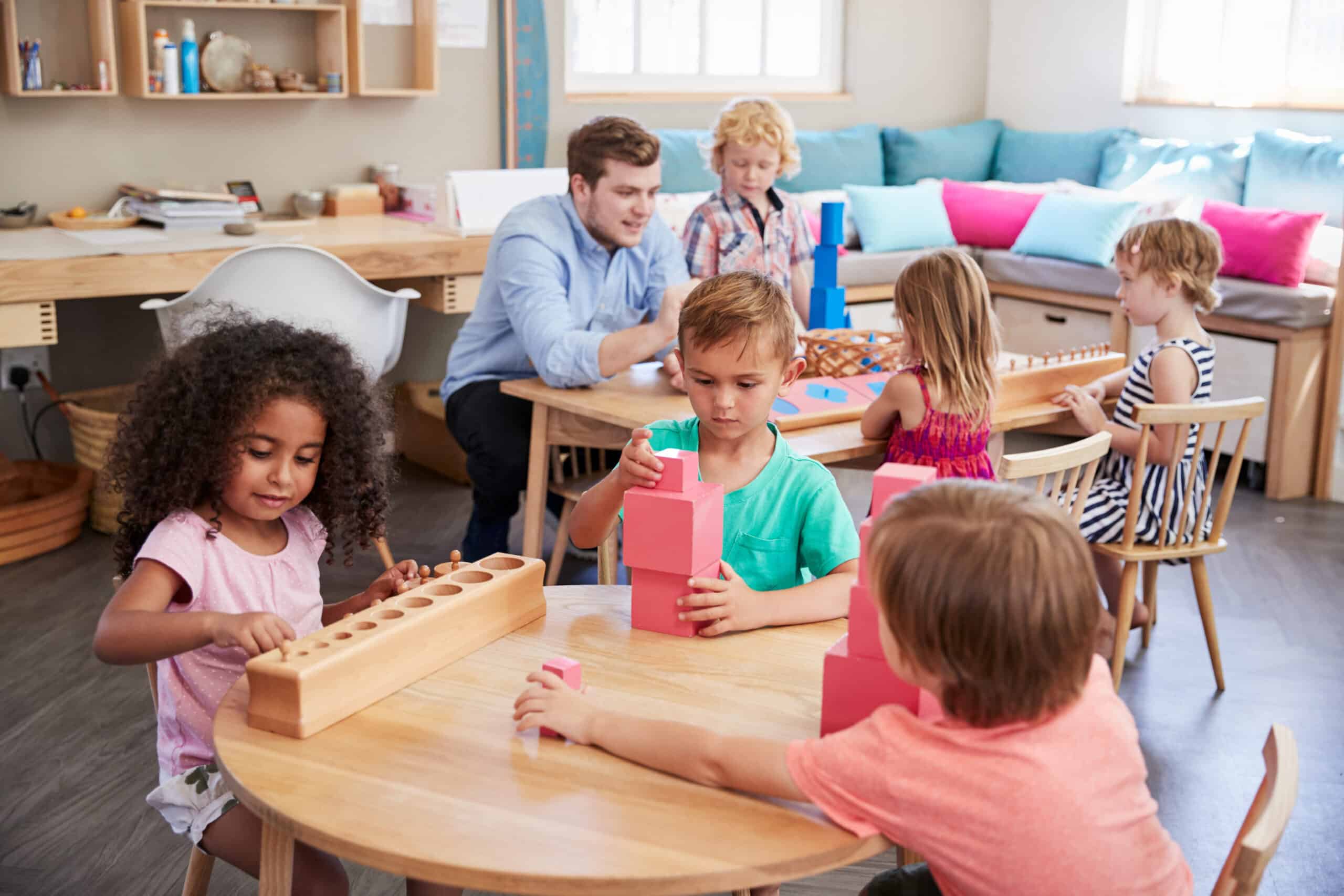Montessori education is a child-centered method of education. This education model was developed by Dr. Maria Montessori, an Italian physician, educator, and early women's rights activist, in the early 20th century. The Montessori method is based on the idea that children have an innate desire to learn, and that they learn best when they are given the freedom to explore and discover their environment in a self-directed, hands-on way. Keep reading to learn everything you need to know to answer the question: What is a Montessori education?
Key Points
- There are currently over 20,000 Montessori schools in over 110 countries. 5,000 of those schools are in the United States.
- A Montessori classroom is generally split into stations; each station represents a certain set of skills or knowledge, such as life skills or math.
- The Montessori approach is based on the idea that children go through different developmental stages, and that they should be allowed to guide their own learning.
Montessori: The Woman Behind the Method
Maria Montessori (1870-1952), was an Italian physician, educator, and innovator who developed the eponymous Montessori method of education. She believed that children have an innate desire to learn and the capacity to be self-taught. The role of the teacher is to provide a stimulating environment that allows children to develop their full potential. Her method emphasizes self-directed learning and hands-on, experiential learning activities. Montessori education focuses on the whole child, including their physical, emotional, and social development. Montessori's approach has been widely adopted in schools around the world. As of 2022, there are over 20,000 Montessori schools spread across the globe in 110 countries. The United States currently boasts over 5,000 Montessori schools.
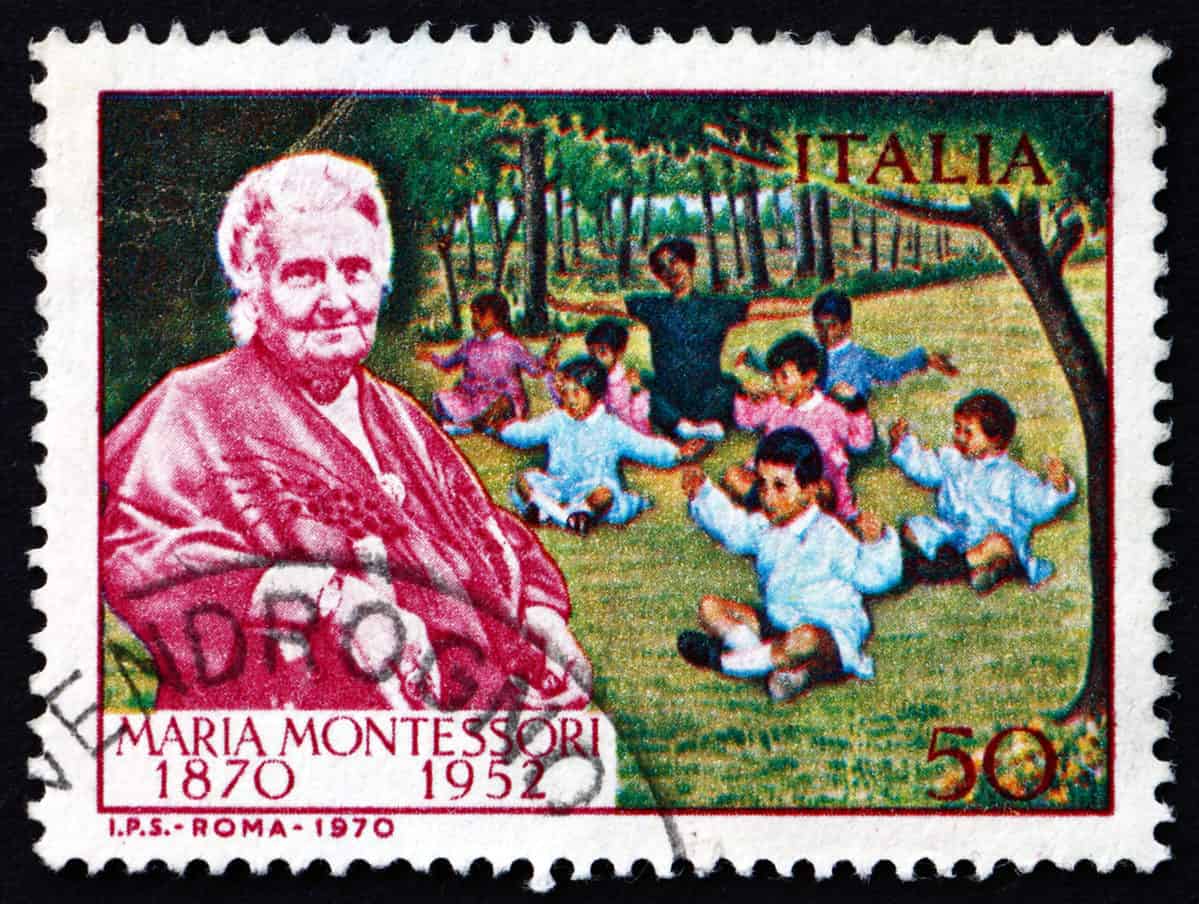
©Boris15/Shutterstock.com
Lasting Legacy
Dr. Montessori is remembered as a pioneer in education and as one of Italy's first female physicians. Her work transformed the lives of many of Italy's children who were previously considered uneducable. Her efforts always prioritized children, rather than furthering her own personal goals. Montessori's legacy continues to inspire educators and parents to create environments that nurture the unique abilities and interests of each child. Her method is a powerful reminder of the importance of giving children the freedom to explore and learn in their own way, at their own pace, and in a way that is meaningful to them.
Montessori Classrooms
The Montessori classroom is designed to be a stimulating and nurturing environment that encourages children to be active, curious, and independent learners. The classroom is usually divided into several stations, including a practical life station, where children can learn basic life skills such as pouring, sweeping, and buttoning; a sensorial station, where children can explore the world through their senses; and math and language stations at which children can learn basic concepts such as counting, reading, and writing.
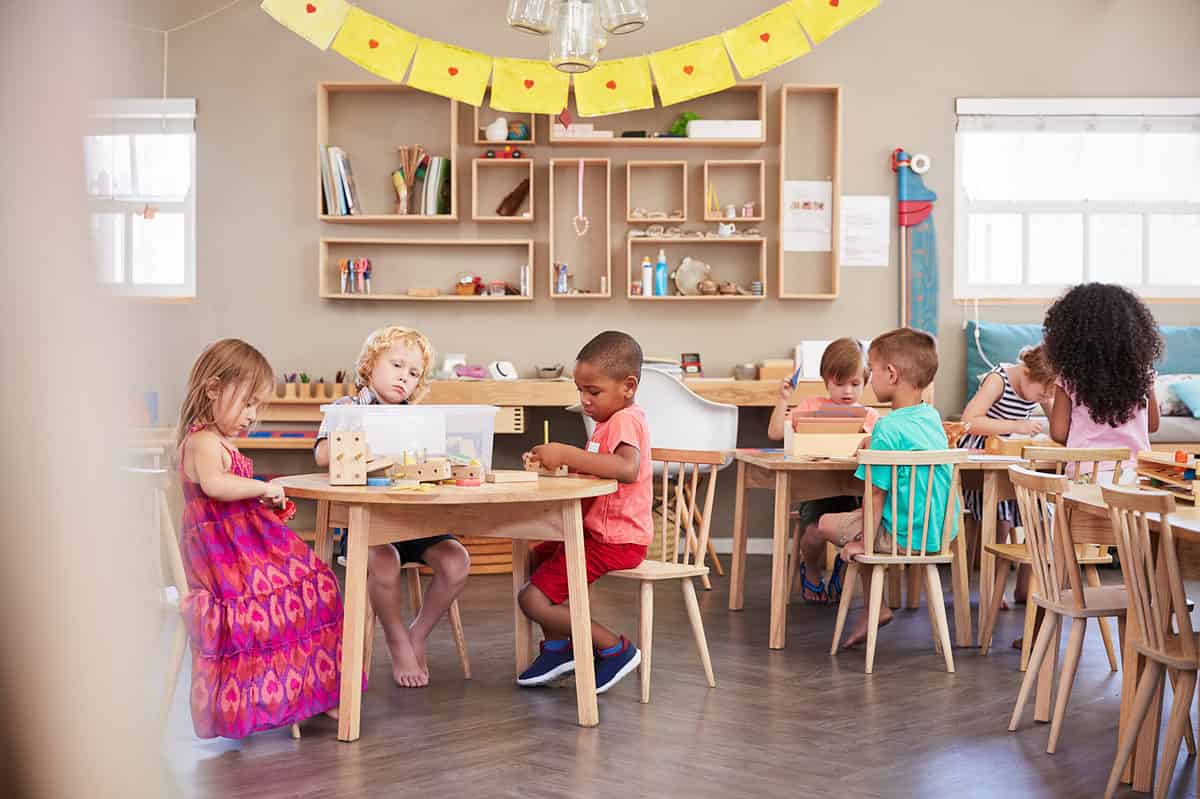
©Monkey Business Images/Shutterstock.com
Montessori Teachers
Montessori teachers act as facilitators and guides rather than authority figures or experts, encouraging children to discover and explore their environment, rather than imposing their own ideas and knowledge on them. The Montessori teacher is responsible for preparing the environment, observing the children, and providing them with materials and activities that match their needs and interests. The Montessori teacher does not give tests or hand out grades. And if they do give homework, it's more likely to be an experience than an assignment.
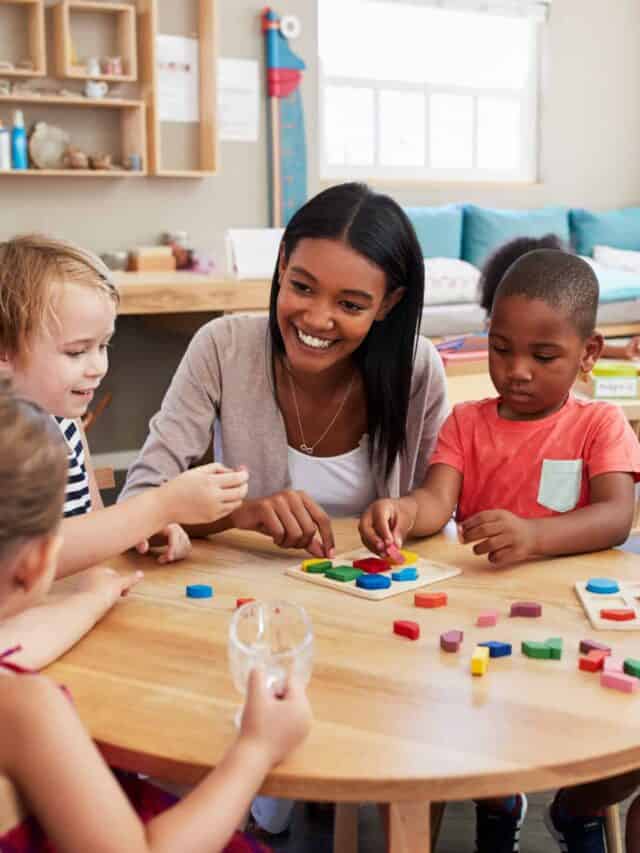
Montessori Method
Collaborative Learning
The Montessori method emphasizes the importance of social interaction and cooperation, and the development of self-discipline and self-control. Children are encouraged to work together and to respect the work of others. The value of collaborative learning is that it allows students to learn from one another, develop social skills, and increase their understanding of a subject through active engagement and discussion. Additionally, collaborative learning can increase student motivation and engagement and can lead to deeper learning and better retention of material. Collaborative learning also helps to prepare students for the real world, where they will often need to work with others to achieve common goals, by showing them the value of teamwork.

©Rawpixel.com/Shutterstock.com
Sensitive Periods
The Montessori approach to education is based on the belief that children go through distinct developmental stages, or sensitive periods when neural pathways are opening to new experiences. Specific needs, abilities, and interests are characteristic of each period. Montessori teachers strive to understand the unique needs and abilities of each child and to provide them with activities and materials that are appropriate for their stage of development.
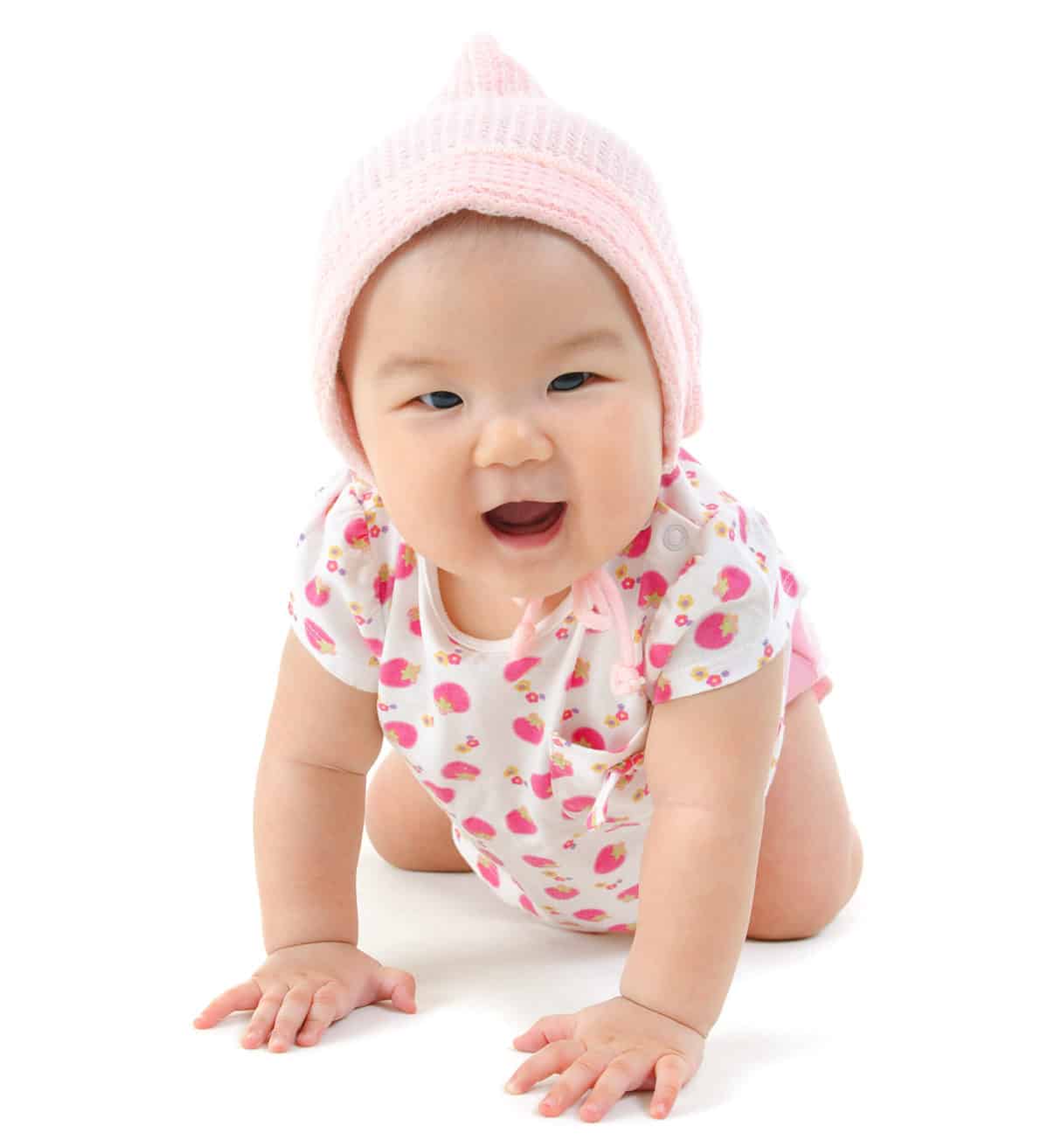
©szefei/Shutterstock.com
Self-Directed Learning
One of the key principles of Montessori education is the importance of self-directed learning. Given the freedom, children choose their own activities and work at their own pace. This allows them to develop a sense of autonomy and intrinsic motivation, and to become confident and independent learners. It follows that Montessori students tend to embrace their individuality and allow others to do the same, without question or judgment. Res
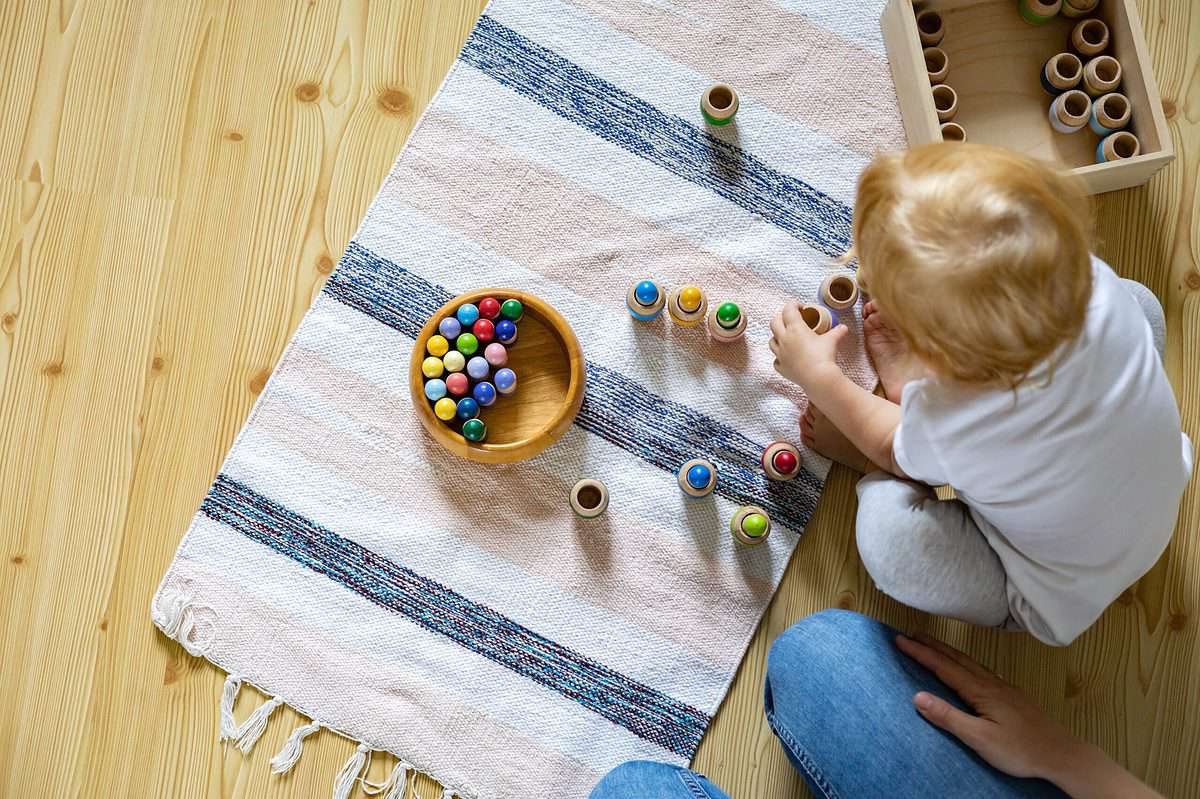
©Kostikova Natalia/Shutterstock.com
Respect for the Child
Montessori education is also known for its reverence for the child and for childhood. Montessori education focuses on the development of the whole child, including physical, emotional, social, and cognitive development. The Montessori method encourages children to develop their creativity, curiosity, and problem-solving skills, and to become responsible and compassionate individuals. It encourages adults to help children on this path, but to allow them to guide their own growth. When it comes to punishments and rewards, the Montessori method favors teaching children about cause and effect over using the same punishment/reward system for every act.
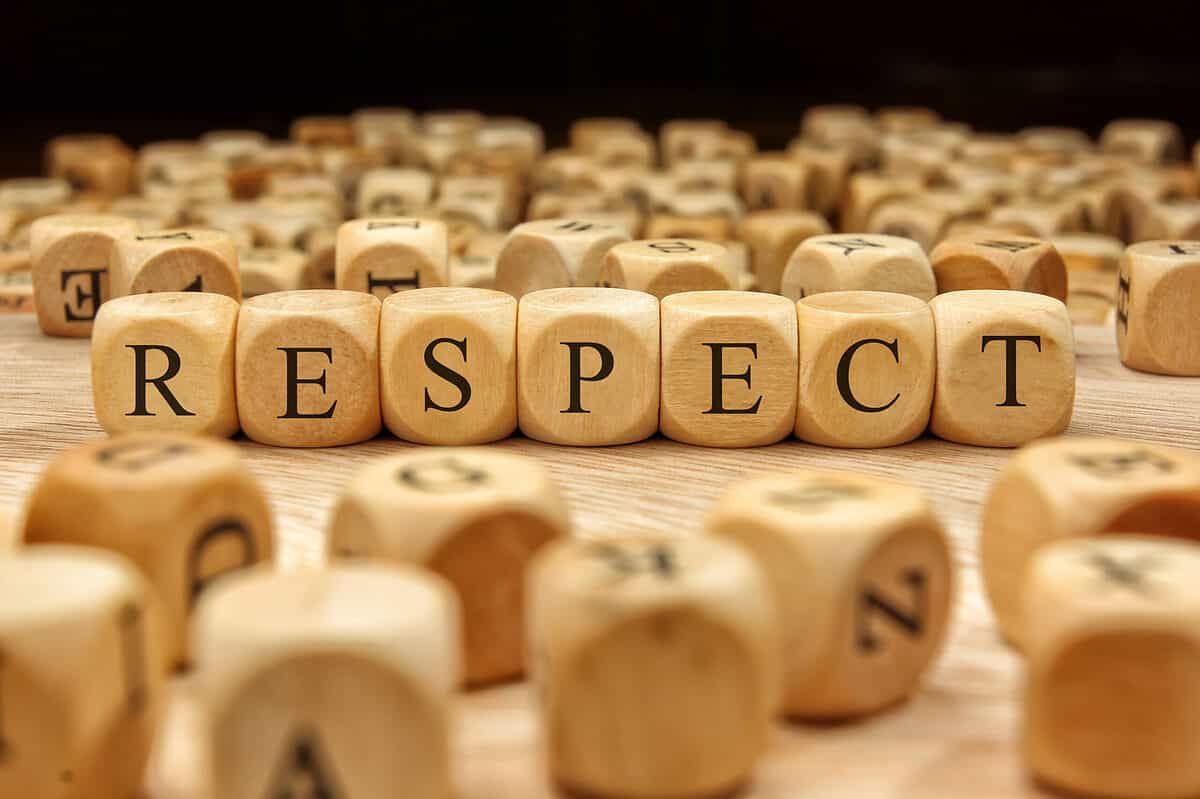
©Fabrik Bilder/Shutterstock.com
Alternative and Progressive
The labels alternative and progressive are often used to describe Montessori education. Montessori schools offer a different structure and philosophy from traditional schools and are considered by some to be more progressive or alternative. However, as the fastest-growing movement in education, those labels may be falling by the wayside in the not-too-distant future.
Famous Montessori Alumni
You may have heard Beyonce, Mark Zuckerberg, Bill Gates, or Princes Harry and William circulated as Montessori alumni. Sites that champion a Montessori education often point to these individuals as evidence of the ability of this educational style to set children up for success. The American Montessori Society reports that they were unable to confirm if any of these individuals actually attended a Montessori school. So, it's safe to say that you shouldn't add these names to your list of celebrities that have attended a Montessori institution!
Here's a list of celebrities who actually attended a Montessori school:
- Taylor Swift, award-winning singer and songwriter.
- Jeff Bezos, billionaire and founder of Amazon.
- Larry Page and Sergey Brin, founders of Google.
- Chelsea Clinton, daughter of Bill and Hillary Clinton
- Steph Curry, NBA MVP and Golden State Warriors player
- Anne Frank, writer and Holocaust victim
- Will Wright, creator of the mega-successful Sims video game series
- Prince George
- Seth Curry, NBA player
- Joshua Bell, violinist and Grammy award winner
Two celebrities who are also often circulated as Montessori alumni are George Clooney, actor, and Jimmy Wales, founder of Wikipedia. The American Montessori Society was able to confirm that neither of these individuals attended a Montessori institution. If you see any celebrity listing themselves or being listed as a Montessori alum, be sure to verify the claim with a trusted source. The popularity of a Montessori education means that many people have and will continue to falsely present themselves as alumni.
Additional Montessori Resources:
The following links are provided for quick and easy access to our library of Montessori articles. Happy reading!
General Interest Articles:
- Who was Maria Montessori, The Founder of Montessori Schools? Learn more about this fascinating woman and her life as an activist, mother, and pioneer of alternative education.
- The Best Maria Montessori Quotes Get to know Maria Montessori through her own words.
- Why Are Montessori Schools Bad? What Are The Criticisms? Read this article to determine for yourself whether or not Montessori schools are bad
- 9 Steps to Setting Up a Montessori Bedroom Learn how to create a Montessori bedroom in 9 easy steps by reading this article.
- 10 Different DIY Montessori Toys That You Can Make at Home You don't have to pay exorbitant prices for Montessori toys. This article will guide you through creating toys yourself for a fraction of the cost!
- The 11 Best Ways to Practice Montessori Parenting Montessori parenting is more of a lifestyle than a set of hard and fast rules. Read this article to learn more.
Articles that Explain More About Montessori's Principles and Methods:
- What are Montessori Schools and What Do They Teach? For a more complete understanding of what Montessori schools teach, check this out.
- What Does it Take to Get Montessori Certified? Interested in becoming a Montessori teacher? Read about the steps to becoming a certified Montessori teacher here.
- What is the Opposite of Montessori? Ever wondered what the opposite of a Montessori education might look like? You've come to the right place
- What is a Montessori Bookshelf and How are They Different? Learn everything there is to know about a Montessori bookshelf and what makes it unique.
- What Is The American Montessori Society and What Do They Do? To learn more about this non-profit organization that promotes Montessori education as well as supports existing Montessori schools in the U.S.
- What is Montessori Furniture ad How is it Different? Everything Montessori related to furniture is here. Well, almost everything.
- What is a Montessori Wardrobe? Montessori wardrobes are simple and practical additions to a Montessori bedroom. Read about them here.
Articles that Answer How:
- How Do You Start A Montessori School? Get the skinny on what it takes to start a Montessori school from business plans to bank loans here.
- How is Montessori Daycare Different Than Other Schools Read about how Montessori daycare is different from traditional models here.
Montessori vs. Articles:
- Montessori vs. Homeschooling: How Do They Compare? Read about how Montessori differs from home school here.
- Montessori vs. Waldorf Schools: How Do They Compare? Discover how these two methods of education are similar and how they're different.
- Montessori vs. Steiner Schools: What's the Difference? These two methods of education are vastly different. Learn how here.
- Montessori vs. Private School: How Do They Compare? Though Montessori schools are typically private, they are still very different from more traditional private schools.
- Montessori vs. Public School: What's the Difference? How are Montessori schools different from public schools? Read about all of the ways here.
The image featured at the top of this post is ©Monkey Business Images/Shutterstock.com.
